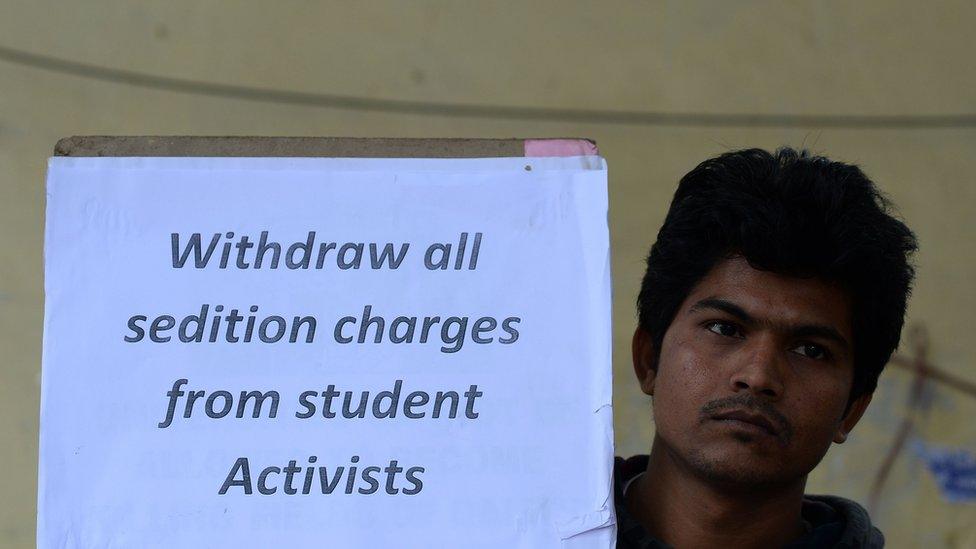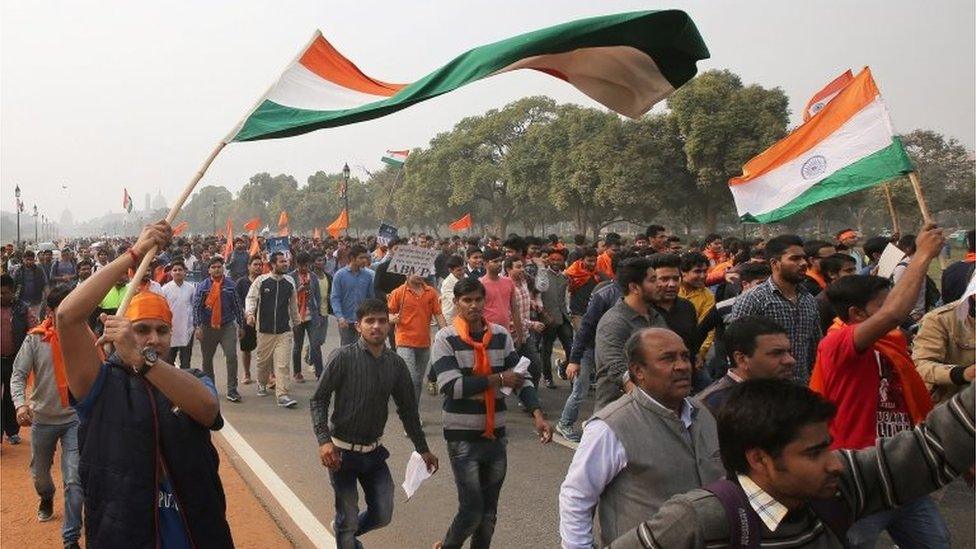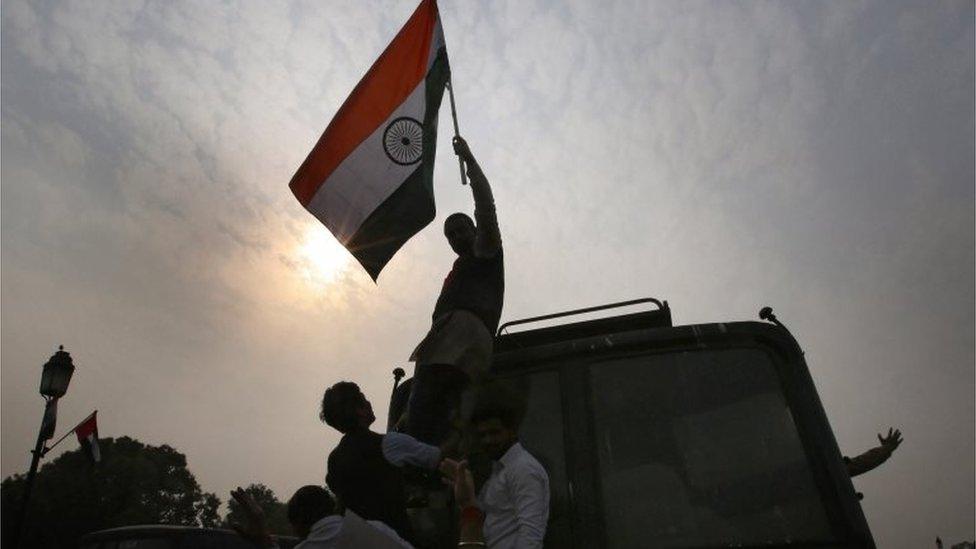Why an Indian student has been arrested for sedition
- Published

One of India's premier academic institutes, Delhi's Jawaharlal Nehru University (JNU) is virtually paralysed by protests following the arrest of a student leader who has been charged with sedition - inciting people to oppose their government.
Kanhaiya Kumar is the president of JNU's students union and was arrested after some students held a rally against the 2013 hanging of Mohammed Afzal Guru, a Kashmiri separatist convicted over an attack on India's parliament.
JNU is often seen as an Indian Berkeley, strongly influenced by the political left and frequently rallying around diverse causes - from ideological debates on India's education system, to communal riots, to global issues such as the war on terror.
Today its sprawling, tree-lined campus is tense.
Several hundred students are staging a sit-in in front of the university's main administrative block, demanding that Kanhaiya Kumar be freed.
"Delhi police leave our campus," they chant, frequently breaking out into cheers and cries of "shame, shame" as speaker after speaker condemns the police action.
Left vs Right
At the heart of the row is a fight between the political right and left.
India's mainstream political parties play an active role in campus politics in the country's major universities.
Many student leaders have gone on to successful political careers, including India's current Finance Minister, Arun Jaitley, a former Delhi university student president.
The JNU student union has close ties to India's Communist parties and after the arrest of its president, the entire opposition has come out in support of the students over an issue that they believe is an attempt by the BJP to push its Hindu nationalist agenda.

Sedition law in India
India's sedition law dates back to 1870, introduced by the British to hit back at anti-colonial movements.
Some of the country's leading independence leaders, including Mahatma Gandhi, were tried under the infamous law.
The sedition law has rarely been upheld by India's courts. But anyone charged under the law cannot apply for bail immediately and so can be instantly imprisoned.
"The question of how much criticism a government can tolerate is indicative of the self-confidence of a democracy," writes Lawrence Liang in an article for The Wire, external.
"On that count, India presents a mixed picture where, on the one hand, we regularly see the use of sedition laws to curtail political criticism even as we find legal precedents that provide a wide ambit to political expression."

Many of the students believe that the move is a direct assault on their right to dissent.
"We are defending the right to have opinions," says one student.
"You can have opinions on a judgement, you can have opinions on any issue that is going on and they are taking away that right."
Some are angry at suggestions made by BJP leaders, that the university has become a hot-bed of anti-national sentiments with some accusing the campus of supporting Kashmiri militants.

Student activists protest against the JNU demonstrators
One student tells me that they totally condemned the "anti-national slogans that were [allegedly] raised [at last week's rally] by certain fringe elements.
"But that doesn't give them the right to label an entire university of 10,000 students as anti-national," he argued.
And it's not just the students who are protesting. Many of the university's faculty members have also come out in strong support.
Sharp divisions
Surajit Mazumdar, an economics professor, sees the move to arrest Kanhaiya Kumar and charge him with sedition as an attempt to "terrorise the students into submission".
"JNU has always been a university priding itself on its democratic culture of debate, dialogue and discussion. There are diverse political, ideological and academic opinions that exist in this university and it has always been possible to engage with each other without requiring any police interference," he adds.
But the issue has divided India sharply with some coming out in support of the government's action.
Just across the university, a counter-protest is taking place with demonstrators holding aloft the Indian flag and carrying placards demanding that JNU be "cleaned up" and that "traitors" should be hanged.
"The university has been built on public land using taxpayers' money," says Sumitra Dahiya.

There have been huge protests against the JNU students
"But they have shamed all of us - by supporting those people who have killed innocent people in India. We want these students to be thrown out of the university."
"There is no place here for people who support Pakistan and terrorists," says Anand Singh, who is also taking part in the protest.
Prakash Karat, a senior leader of India's main Communist party, says the government should immediately withdraw the case of sedition.
"It is absurd to charge them with sedition," he told the BBC.
"At stake is the very democratic ethos in our education system because you have a government that is determined to impose its ideological and communal values into all the educational institutes in this country," he added.